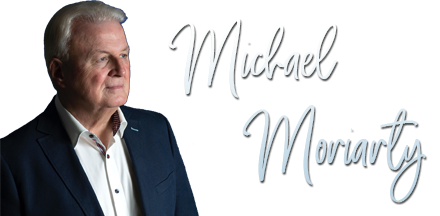Values are like fingerprints. Nobody’s are the same, but you leave them all over everything you do – Elvis Presley.
Values are fundamental beliefs that guide our behaviour and relationships and frame our attitudes and actions. They help in determining what’s important in life. They reflect our thinking on what is right and wrong.They are at the core of our sense of identity.They are stable long-lasting beliefs which are the guiding principles of our lives.
Common values include loyalty, truthfulness, authenticity, humility, resilience, respect, integrity, kindness, courage, gratitude, patience. These and similar other values are defining characteristics which are the motives behind our actions and the standards which guide our lives and life choices. They set the standards by which we evaluate people, actions and situations.
To know ourselves and to establish our priorities we must know what are our values. Why? Because values help us define our purpose in life, who we are and what we stand for. Our decisions and actions reflect our values and beliefs and so determine our sense of self-worth. Your self-worth is fostered by your values and has a value in itself and must never be diminished by others’ opinion of you.. Your self-worth comes from within and knowing your values and what you stand for are fundamental in determining your attitude to life. Values help us develop our sense of self-worth and frame our identity. The stronger our values the stronger is our self-identity.
Developing self-awareness takes time and involves having a clear perception of your strengths, weaknesses, thoughts, beliefs, motivations and emotions. Sometimes we are harsh on ourselves in terms of our self-judgement but knowing your values and living by those values makes for a transparent sense of self-worth. Values give you a sense of purpose by giving you the”why” in life-why you behave the way you do. Our value is the sum of our values- Joe Batten. While our lives are often full of compromise, living with integrity means living in harmony with our personal values. Our core values define who we really are. They give us strength in character.
In any leadership role you will need to know your purpose and what you stand for. To have purpose as a leader you need to know your values and live by them because a leader ideally is the role model for followers. As the leader you must never lose focus on values and your values must translate into actions. Values should underpin and define your decision-making and behaviour .
Most organisations have mission statements, sets of values and guiding principles. Examples of an organisation’s values are integrity, quality, customer service, high-performance, teamwork etc. A values-based leader’s own personal values should broadly align with the organisation’s values, because there needs to be harmonious compatibility.. To be an effective leader you must be a good fit for the organisation you lead. As the leader you will have an expectation that others will live by the organisation’s values by demonstrating value-driven performance.. Good leaders will support those who live by the organisation’s values and assist those who face obstacles and barriers.
As leader and role model in an organisation,company or other entity you should always show why values are important and the organisation’s values should be well-articulated, widely shared and practised. A primary responsibility for the value-driven leader is to ensure that core values are maintained and that they have validity for those who work in the organisation. The organisation’s values should be reflected in policies and practices, thereby promoting commitment, high-performance and enhanced productivity.
Core values are the very essence of an organisation’s identity. They shape the organisation’s vision and inspire its culture. The values-based leader’s role is to ensure that the values permeate all parts of the organisation’s behaviour and practices and are reflected in it’s mission and vision statements. Values will therefore define the culture of the organisation and inform its goals and priorities . They define how those in the organisation think, behave and act in the context of shared vision and common values .
It is important for organisations to invest time and money to identify core values. The role of the leader is to lead this process and, in turn promote a high-performance work ethic inspired by commitment to agreed common values. Well-communicated value statements are the guiding lights which guide decisions and actions of all those in the organisation. The values-based leader will not just live by the organisation’s values but will also embed them into the management philosophy. When the leader’s own values are in broad sync with the core values of the organisation it is more likely that such coherence will inspire greater loyalty from others in terms of acting and living out the mission of the organisation they serve.
In the education and training sectors, values-based leadership has always been central in the development of educational philosophy and practice.. School leaders now receive executive coaching so that they have greater insights into their leadership roles. School leaders will have a good understanding of the mission and values of their schools. Values are at the heart of moral purpose in education and they define the school’s ethos, culture and purpose. Promoting good ethical behaviour and promoting values such as respect, integrity, justice, care, empathy is at the core of educational practice. Shared values promote a cohesive educational community where people ideally act in common cause with shared purpose.
In the world of politics and public administration, political leaders have to face many societal challenges and pluralistic interests. As well as political astuteness, leaders will need clearly defined personal values if they are to manage complex, diverse and competing societal interests. Strength of character is what defines accomplished leaders and gives them clear purpose. But values are their moral compass which guides their action and decisions. Our best leaders have both strength in character and well-defined sets of values.
Values-based political leaders are committed to “doing the right thing” because they are driven by values such as integrity, tolerance and resilience. By and large such leaders are self-aware ; they understand their own values and those of others.They can initiate and secure public value outcomes by leading with values and by instilling values in policy decisions and practices. By being authentic and accountable the values-based leader can enhance societal cohesion by mobilising citizens and stakeholders in common cause to achieve societal goals.
Today there is a considerable lack of confidence in world leadership, particularly in respect of the most powerful nations. Some of us may find it difficult to identify such values as respect, integrity, humility, loyalty, accountability and open-mindedness in the leaders of powerful nations because they are not often reflected in their attitudes and actions. Values-based leadership is based on moral principles. Values need a moral anchor. Building societies of trust while leading and managing diversity is not an obvious priority for some powerful political world leaders. As a consequence, they do not appear to fulfill the role of genuine world leaders.
Values are important in both life and leadership. They are most valued when they are clearly defined and understood. Take time to self-reflect on what matters most to you. Understand that you need values and you need to live by those values. Values guide your decisions and actions; they create clarity and purpose in your life. When you live your values you will communicate your passion and passion is what leaders need to inspire followers. Your core values, beliefs and principles define you and can determine your confidence and effectiveness as a leader. Your core values in life and leadership can be your deciding factors for success. You only have one life, but if you do it right, once is enough – Mae West.
(Feature photo by Jen Theodore on Unsplash)

